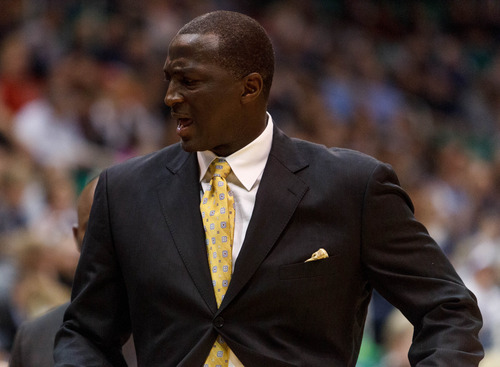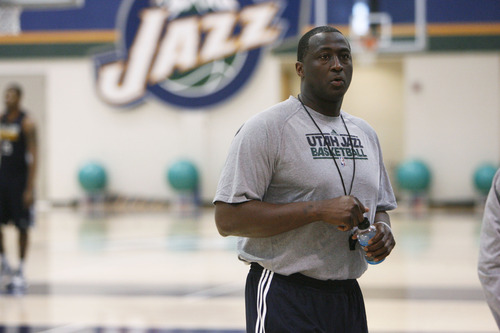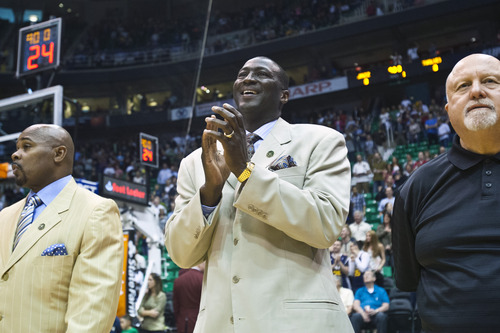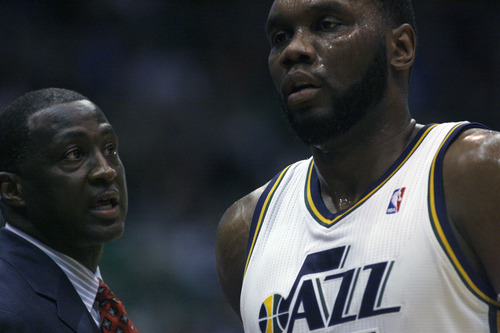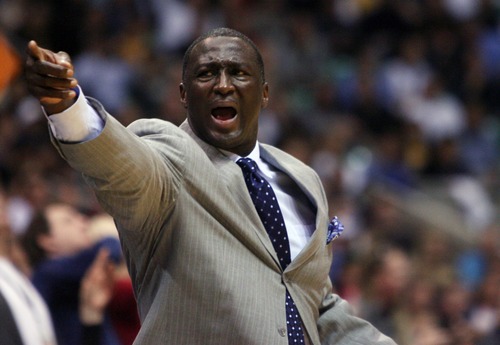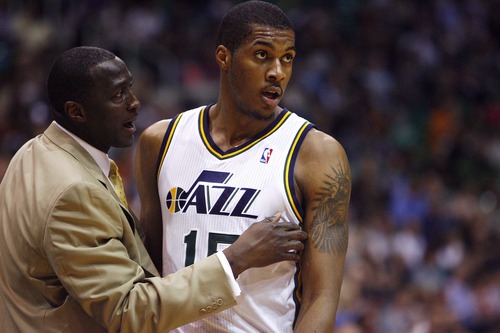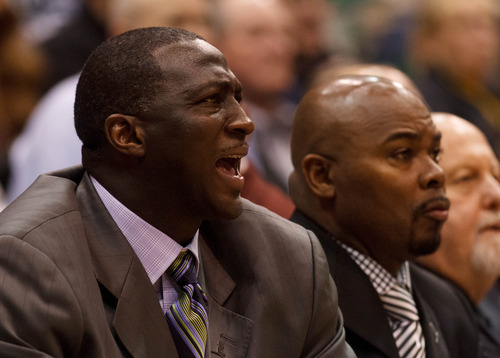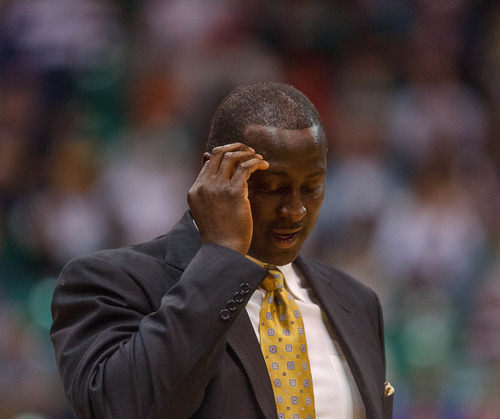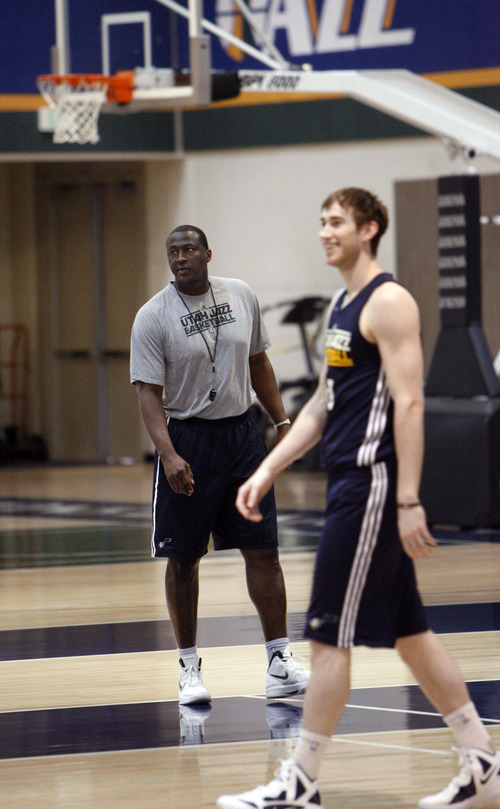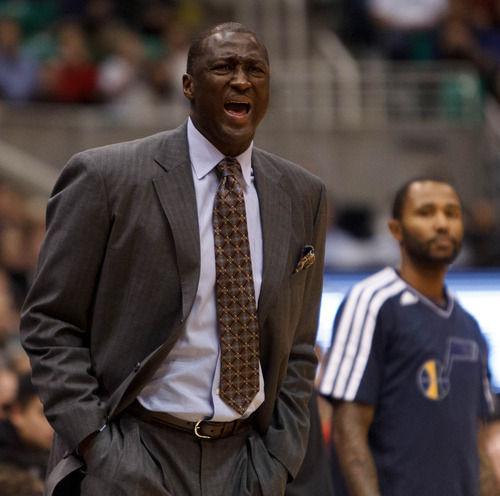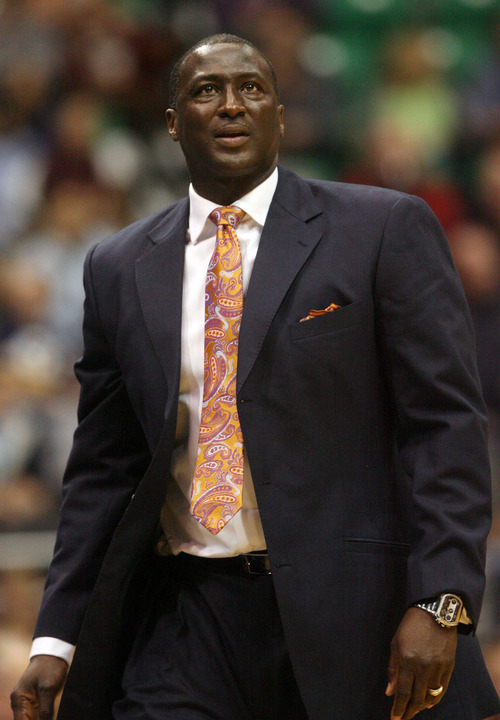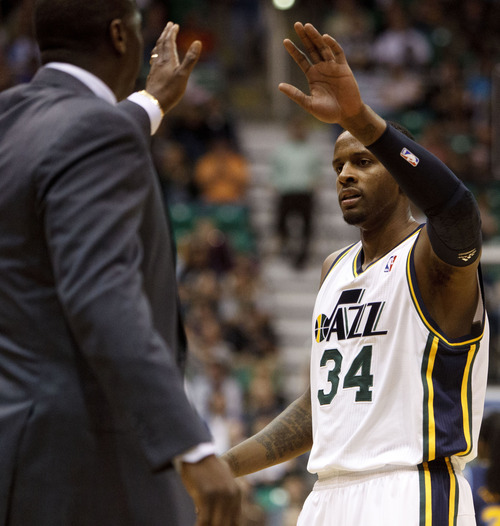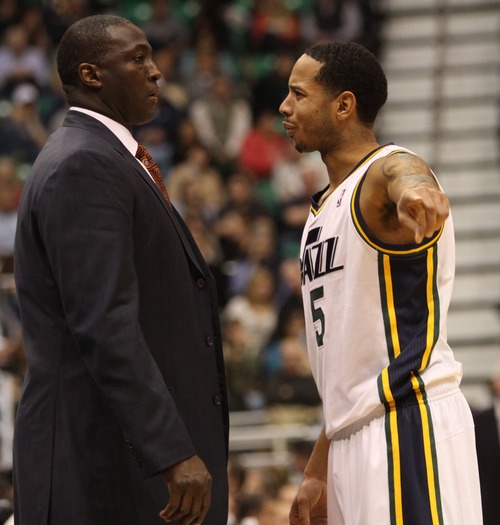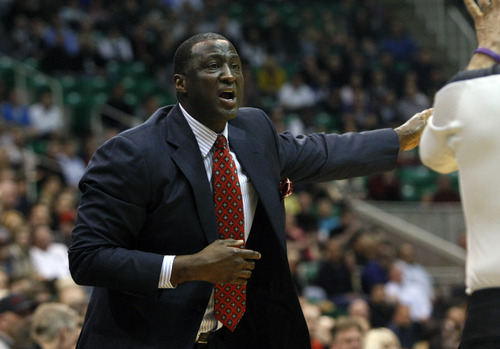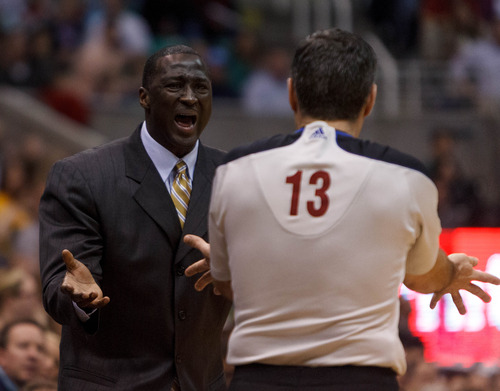This is an archived article that was published on sltrib.com in 2014, and information in the article may be outdated. It is provided only for personal research purposes and may not be reprinted.
Suddenly, the Jazz have become just like every other pro sports franchise.
That's what I wrote in February 2011, when Jerry Sloan stopped coaching the team, and the theory was validated Monday when the Jazz fired Tyrone Corbin, Sloan's replacement.
Technically, the Jazz didn't renew Corbin's contract after a 25-57 season. Yet he's the first coach in 32 years who left the Jazz via someone else's decision — and Tom Nissalke has always said he was "relieved" when that happened to him.
Corbin, in contrast, wanted to return. Having delivered the news, Jazz general manager Dennis Lindsey described Corbin's reaction as ranging from "disappointment to anger and everything in between."
Having hoped Corbin would survive, I made my concession speech in early April, recognizing there was no compelling reason to keep him. His job was challenging from start to finish, but the coaching change is completely defensible — with the Jazz's lousy defense among the biggest reasons.
It also means the Miller family, the team's owners, can't claim the Jazz are different from any other franchise. The Jazz have joined the "blame-the-coach culture" that Lindsey once said they rose above, and the next coach will be subject to scrutiny like everybody else in the league.
Then again, the late Larry H. Miller wanted to fire Sloan after losing his first playoff series in 1989, only to be talked out of the move. Sloan lasted for nearly 22 more years, defying the NBA's coaching turnover.
Corbin was not hired by Lindsey, who arrived two years ago and now will conduct the Jazz's first coaching search since 1979, when the team started playing under Nissalke in the old Salt Palace. The hiring will become the Jazz's biggest decision since the trade of Deron Williams, which came two weeks after Corbin's promotion.
The potential for Corbin's keeping his job peaked in late February, after the Jazz recovered from a 1-14 start by going 20-22. But when the team lost 21 of its last 25 games — never mind that many fans were more unhappy about those four wins than the 21 defeats, in the interest of draft positioning — Corbin's fate became inevitable.
Corbin made his share of mistakes, in terms of both personnel and strategy, but he deserves credit for holding his team together during some tough times. What's unclear is whether Corbin is losing his job because he lost too many games, or because he tried to win too many games at the expense of playing time for the Jazz's youngsters.
Both, probably. Lindsey cited "a lot of different criteria over multiple years." Asked about philosophical conflicts, Lindsey said it would be fair to "assume that there were different thoughts." Yet he also said he was "completely comfortable with the minutes our young guys got."
So that answers absolutely nothing. The good news is there should be no confusion about the evaluation of the new coach. It's all about wins and losses, starting now.
In any case, the moment I realized a change was inevitable came in mid-March. In the second half of a Western Athletic Conference tournament semifinal game in Las Vegas, Cal State Bakersfield guard Tyrell Corbin, the coach's son, drove into the lane. Corbin had scored seven straight points for his team. With the 35-second clock running down, he desperately floated a shot over Sim Bhullar, New Mexico State's 7-foot-5 center.
The shot had maybe a 25 percent chance of going in, and the ball bounced off the rim. Bakersfield's run ended, and the Aggies went on to win convincingly.
That scene summarized Tyrone Corbin's challenge this season. He had a shot at succeeding, but not a very good one. I'll never fault him for trying to win games. In the process, though, he allowed himself to be judged by his record, and it all crumbled on him.


